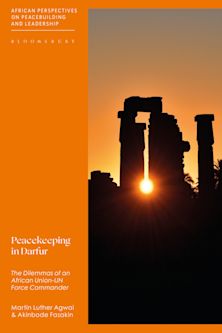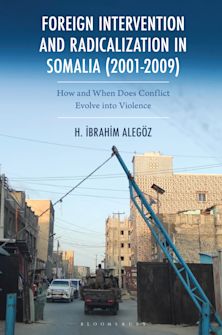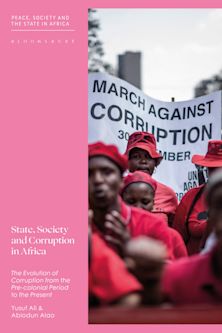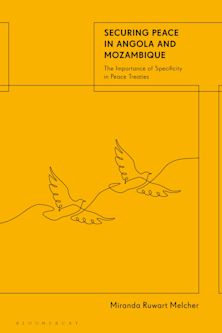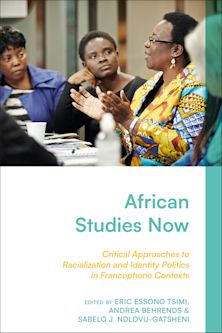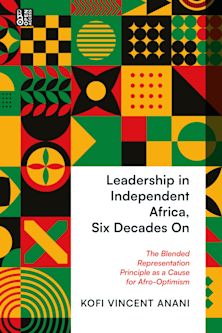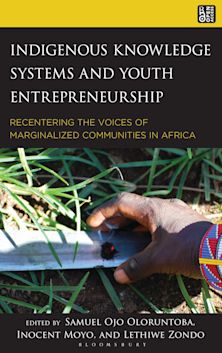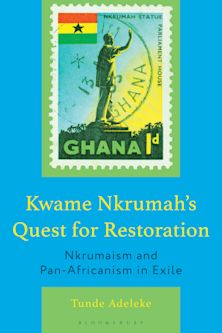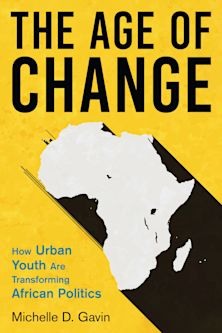- Home
- ACADEMIC
- Politics & International Relations
- African Politics
- Creole Language, Democracy, and the Illegible State in Cabo Verde
Creole Language, Democracy, and the Illegible State in Cabo Verde
Creole Language, Democracy, and the Illegible State in Cabo Verde
This product is usually dispatched within 1 week
- Delivery and returns info
-
Free CA delivery on orders $40 or over
You must sign in to add this item to your wishlist. Please sign in or create an account
Description
Creole Language, Democracy, and the Illegible State in Cabo Verde uses Cabo Verde as a case study to critically examine the language and politics nexus in a small Creole island state. The current sociolinguistic condition of the country is that of diglossia, whereby Portuguese assumes the language of power, prestige, and high culture at the expense of the mother tongue of its citizens, the Cabo Verdean language, locally known as Kriolu. The postcolonial diglossic language policy stands on both domestic and international factors. Thus, Abel Djassi Amado explores the country's language policy history since colonial times and discusses how Portugal's diplomacy grounded on language spread policy has significantly contributed to the secondarization of the mother tongue. The ultimate consequence of the current sociolinguistic situation is the development and crystallization of the illegible state as a large segment of the population cannot comprehend the processes, operations, and procedures of power carried out in a language they do not understand. The illegible state has grave consequences on political participation and the overall quality of democracy.
Table of Contents
Introduction
Chapter 1. The Language and Politics Nexus (1890s-1980s)
Chapter 2. Contemporary Politics of Language Policy (1991–2022)
Chapter 3. The International Politics of the Portuguese language
Chapter 4. Diaspora and the Language and Politics Nexus
Chapter 5. The Illegible State in Cabo Verde
Chapter 6. Language Policy and Political Participation
Chapter 7. The Politics of Linguistic Landscape
Conclusion
Bibliography
About the Author
Product details
| Published | Jul 24 2023 |
|---|---|
| Format | Hardback |
| Edition | 1st |
| Extent | 258 |
| ISBN | 9781666922677 |
| Imprint | Lexington Books |
| Illustrations | 6 b/w illustrations; 4 b/w photos; 3 tables; |
| Dimensions | 236 x 158 mm |
| Publisher | Bloomsbury Publishing |
About the contributors
Reviews
-
Abel Djassi Amado provides political scientists, historians, and other social scientists with dynamic interdisciplinary analysis and an insightful, grounded case study regarding the complex relationship between language, state-making, and democracy. Amado's book represents an important contribution to a growing field in terms of African Language Politics.
International Journal of African Historical Studies
-
Amado's work is the first academic book in English on language policy and the politics of language in the unique case of Cabo Verde. The book not only contributes to the wider literature on the language question in post-colonial Africa as well as all creole societies, but it also provides valuable contribution to Cabo Verdeans inside and outside the country who wonder why the country has agonized for so long over its language and its national identity. Abel's book is an imaginative, readable, jargon-free and sweeping work on the history and politics of language in the Cabo Verde, bringing together his own original research and scholarship from multiple disciplines of sociolinguistics, political science, social theory and post-colonial critical theory.
João Resende-Santos, Bentley University
-
Amado's work is the first academic book in English on language policy and the politics of language in the unique case of Cabo Verde. This is an important book. It is the best academic discussion I have read on the subject. It is sure to be hotly debated back in Cabo Verde but it will elevate that decade-old discussion. The book not only contributes to the wider literature on the language question in post-colonial Africa as well as all creole societies, but it also provides valuable contribution to Cabo Verdeans inside and outside the country who wonder why the country has agonized for so long over its language and its national identity. What happens in a country where the “official” language is not the everyday language of the majority of the population, and what does this tell us about governance, national identity, social inclusion? Abel's book is an imaginative, readable, jargon-free and sweeping work on the history and politics of language in the Cabo Verde, bringing together his own original research and scholarship from multiple disciplines of sociolinguistics, political science, social theory and post-colonial critical theory. This is a provocative work. It is not subtle in its critique and careful research. It is unsparing in exposing the discrepancies, hypocrisies, and ultimate damage between the professed ideals of one of Africa's democracies and the actual practices and institutions of democratic governance. Importantly, Abel's work is really not just about language policy. It is about the quality and durability of democracy itself in Cabo Verde. The book's innovative idea of the “illegible state” shows how the use of Portuguese in a society where the majority of the population do not speak it has a harmful impact on political participation and the ability of citizens to hold the state accountable. There are many threats to Cabo Verdean democracy today, and language policy is one of them as it suppresses participation and diminishes accountability. But by making themselves illegible, the state and its governing elites alienate and push away the very society they depend on – a society that has no sense of ownership of the state or democracy and that actively finds ever more creative ways to avoid, evade, circumvent the state, its laws, its rules and institutions. In his frontal, unflinching, and unsparing analysis of the history and politics of language policy, Abel carefully unpacks the many layers of language policy and debates to reveal the ways in which language policy is ultimately a power project by elites to maintain their domination but also how what is ostensibly a practical matter of what language to use touches on the deeper, complex, agonizing struggles the society has over its very identity as a nation – whether it is an African society, European, something else. The book speaks to a bigger issue facing all post-colonial societies, but the country case itself makes the language issue both fascinating and complex – an archipelago of regional differences and a diasporic nation with most Cabo Verdeans living outside the country. Ironic that Cabo Verde turns its back on kriolu but across the oceans the US state of Massachusetts has pioneered bilingual education for Cape Verdean immigrants using their primary language. The book not only reveals the international politics involved in both maintaining Portuguese language hegemony but actively excluding the native language. Aside from the state deliberately making itself illegible, strong regionalism pushes back against the adoption of the native language while the country's global diaspora common language and identity as a people is the native language.
João Resende-Santos, Bentley University
-
This pioneering work about the politics of language and Cabo Verdean Kriolu by scholar Abel Djassi Amado is timely and necessary. As we begin to redefine the boundaries of knowledge production and preservation of national memory, we must seriously consider our understanding of the importance of a people's language. Amado carefully offers historical premises and considers the current and future implications for Cabo Verde, and in the broader context, other nations facing similar circumstances.
Terza Silva Lima-Neves, Johnson C. Smith University

ONLINE RESOURCES
Bloomsbury Collections
This book is available on Bloomsbury Collections where your library has access.












